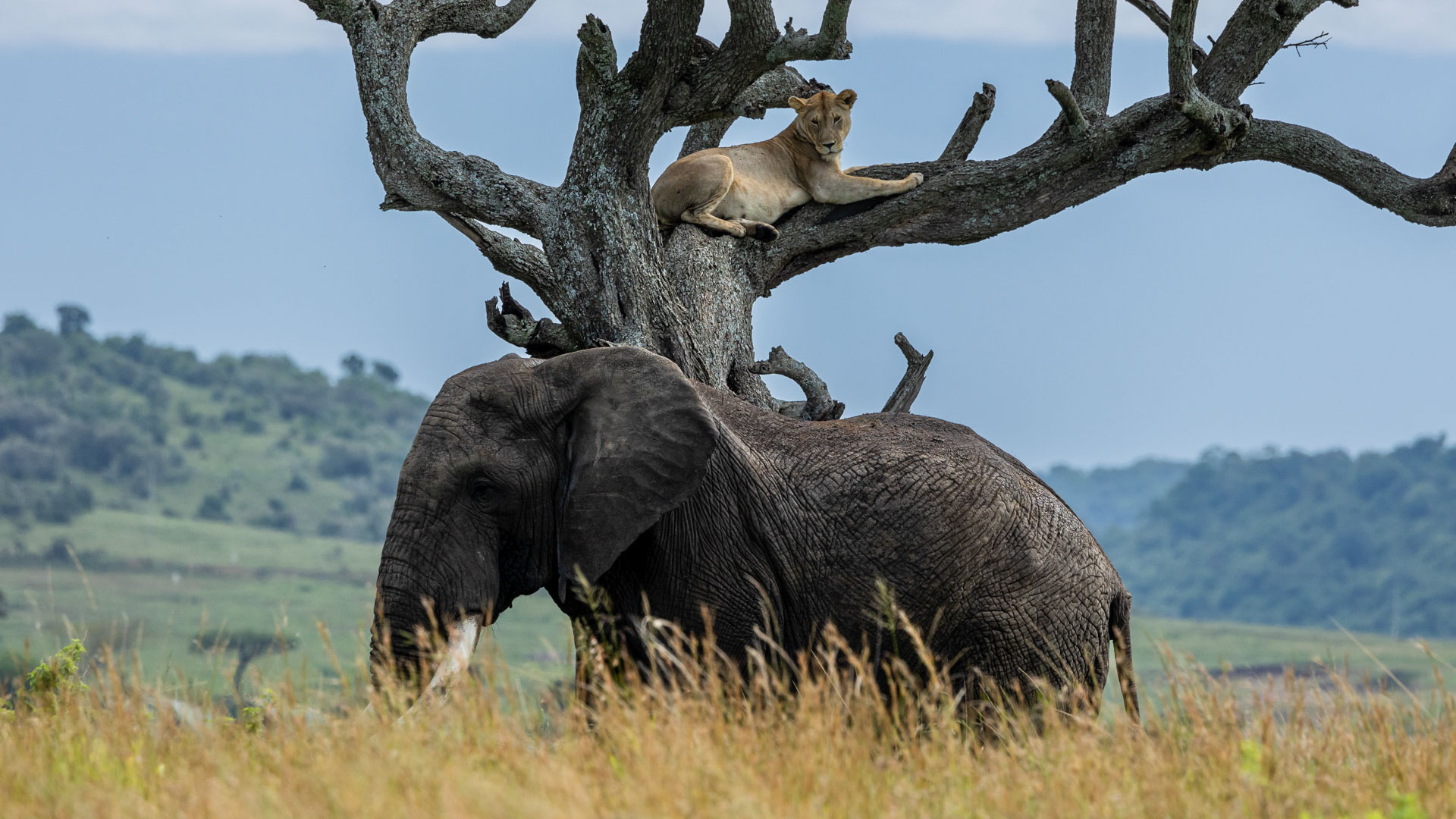
Risasi’s one-year-old cubs are joining the hunts with their mother before she fully separates from them in about six months. The cubs may not be fully adept at hunting on their own at that point but they will form a coalition to increase their odds as they perfect their hunting skills. This separation can happen quite early, as soon as the mother begins her oestrus cycle, a courting male will drive the cubs away.

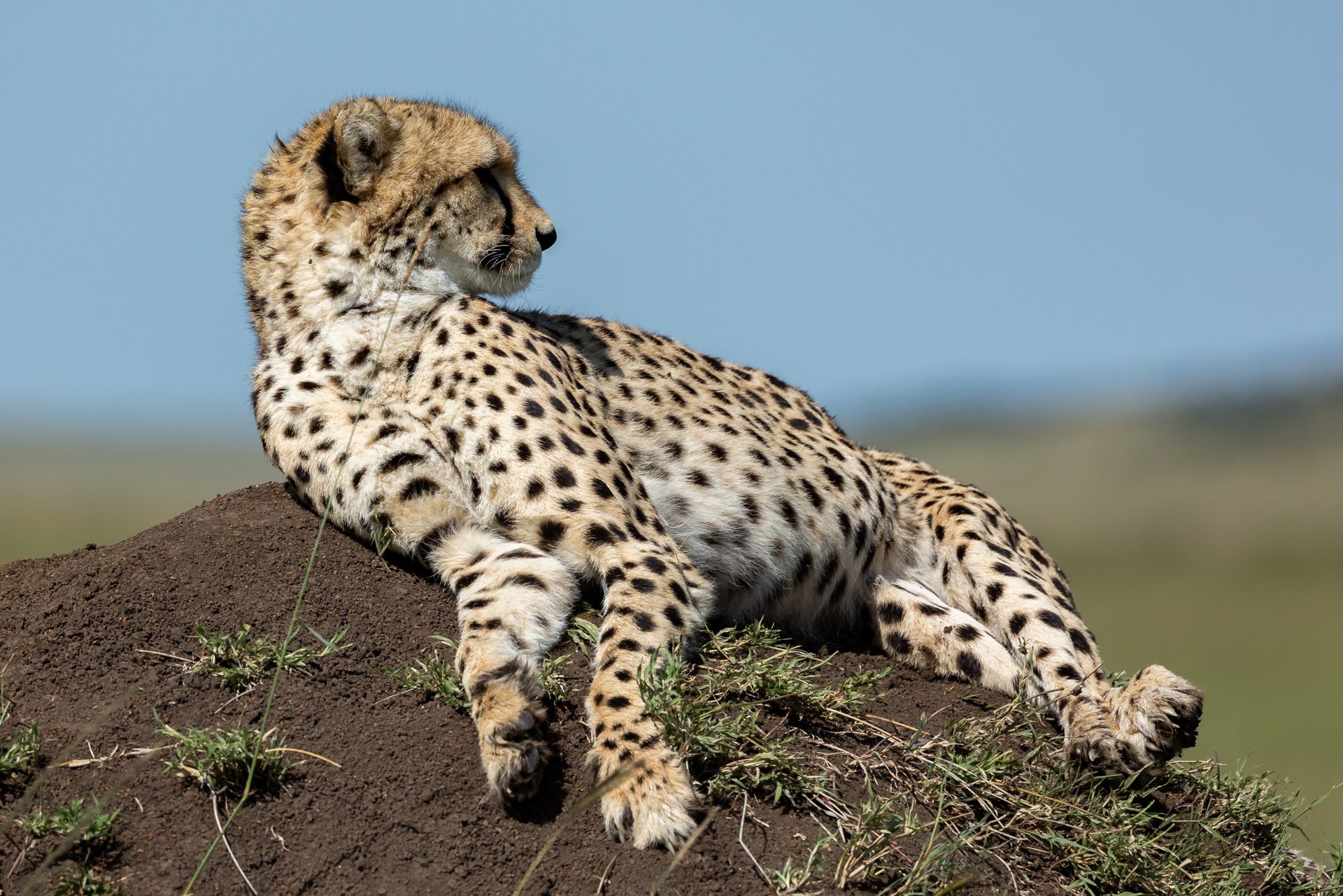
Risasi’s brothers, Ruka and Rafiki, have come back from the Serengeti with a bang — our guests had front-row seats as these brothers made an impressive impala kill. Experienced hunters, they know exactly when to creep closer and freeze. As the impala raises its head from eating, the cheetahs will remain undetected to the impala's colour-blind eyes; they will not pick up the imminent death staring back. Once striking distance is attained, the brothers make it look easy as they bring down the impala in a few seconds.
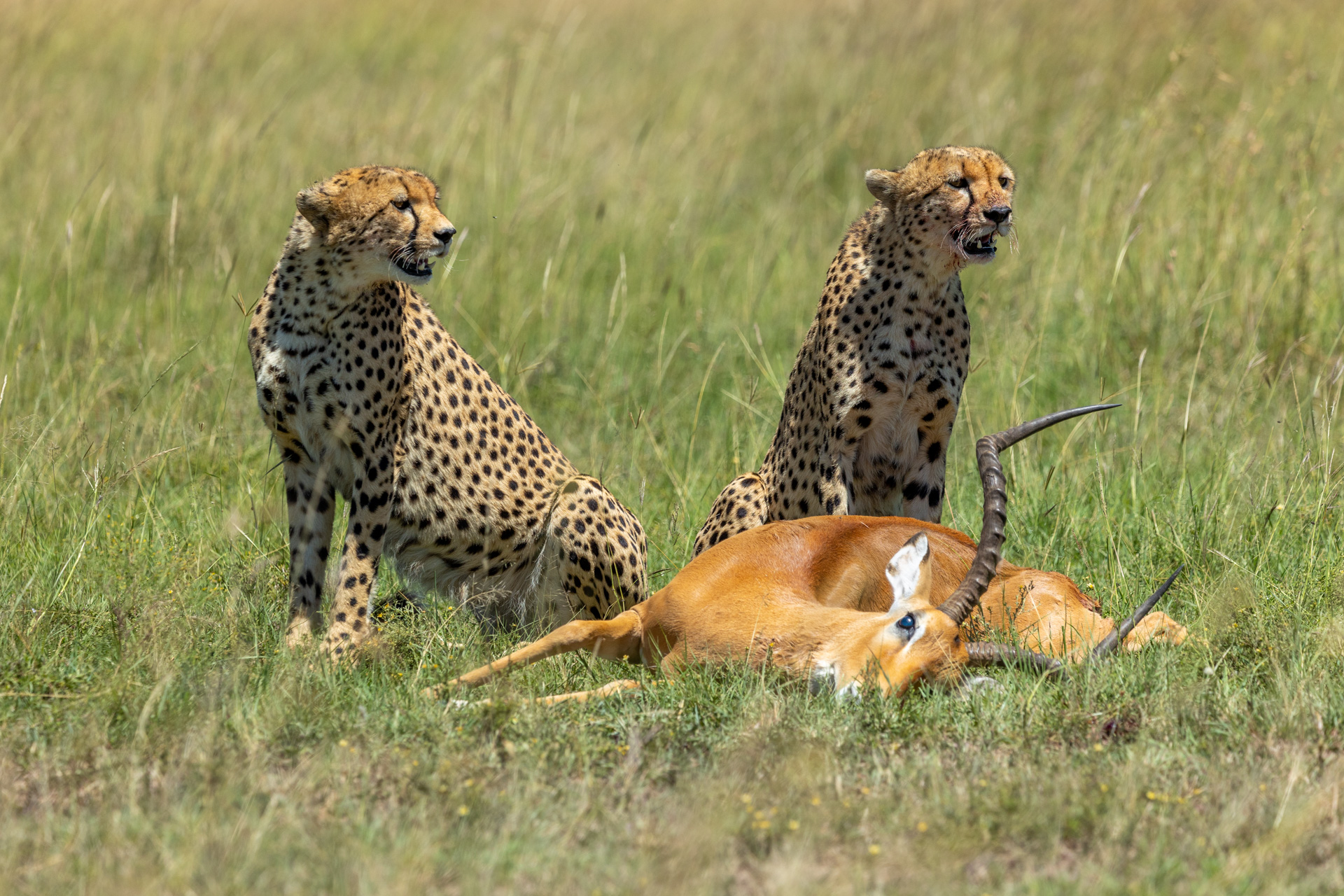
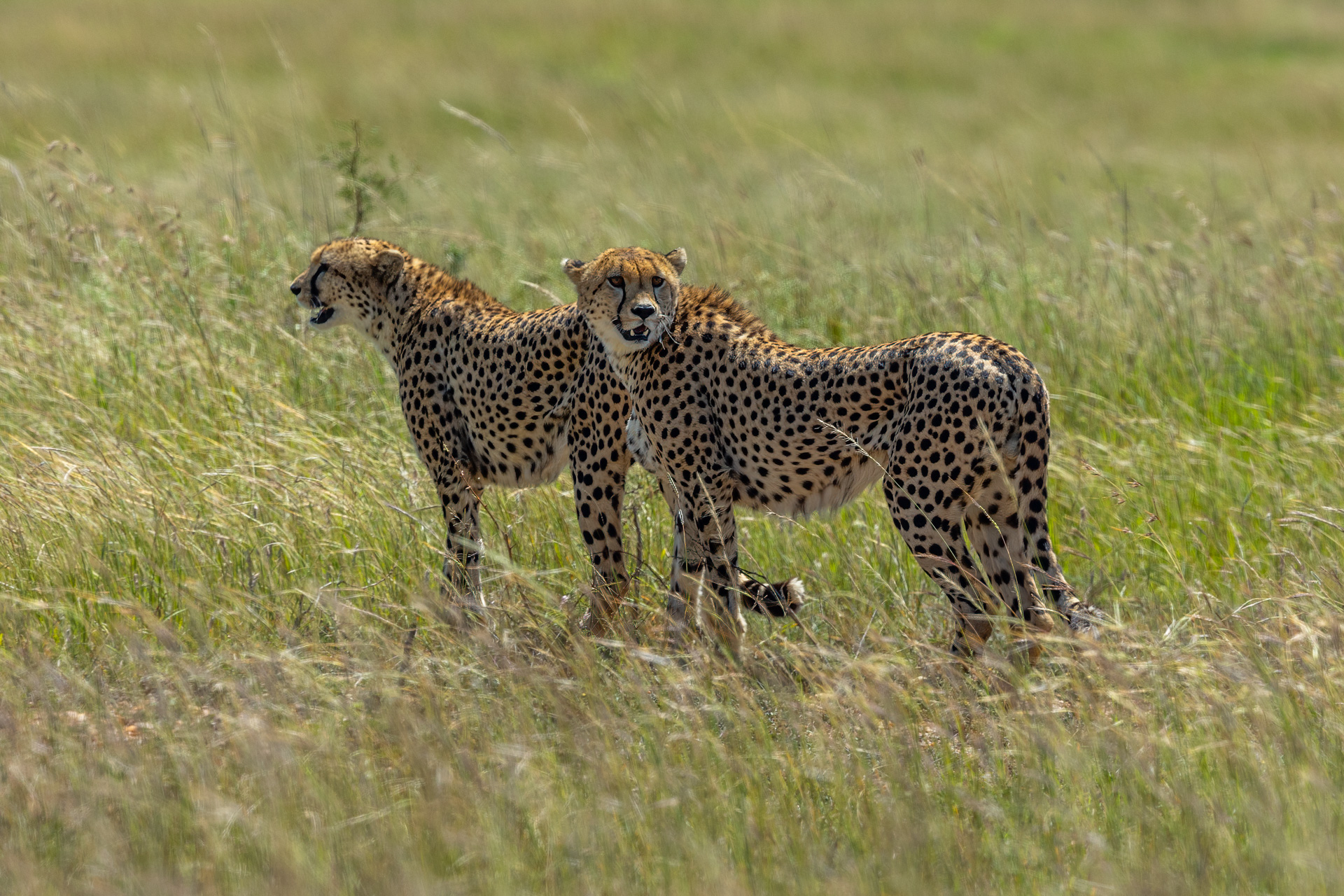
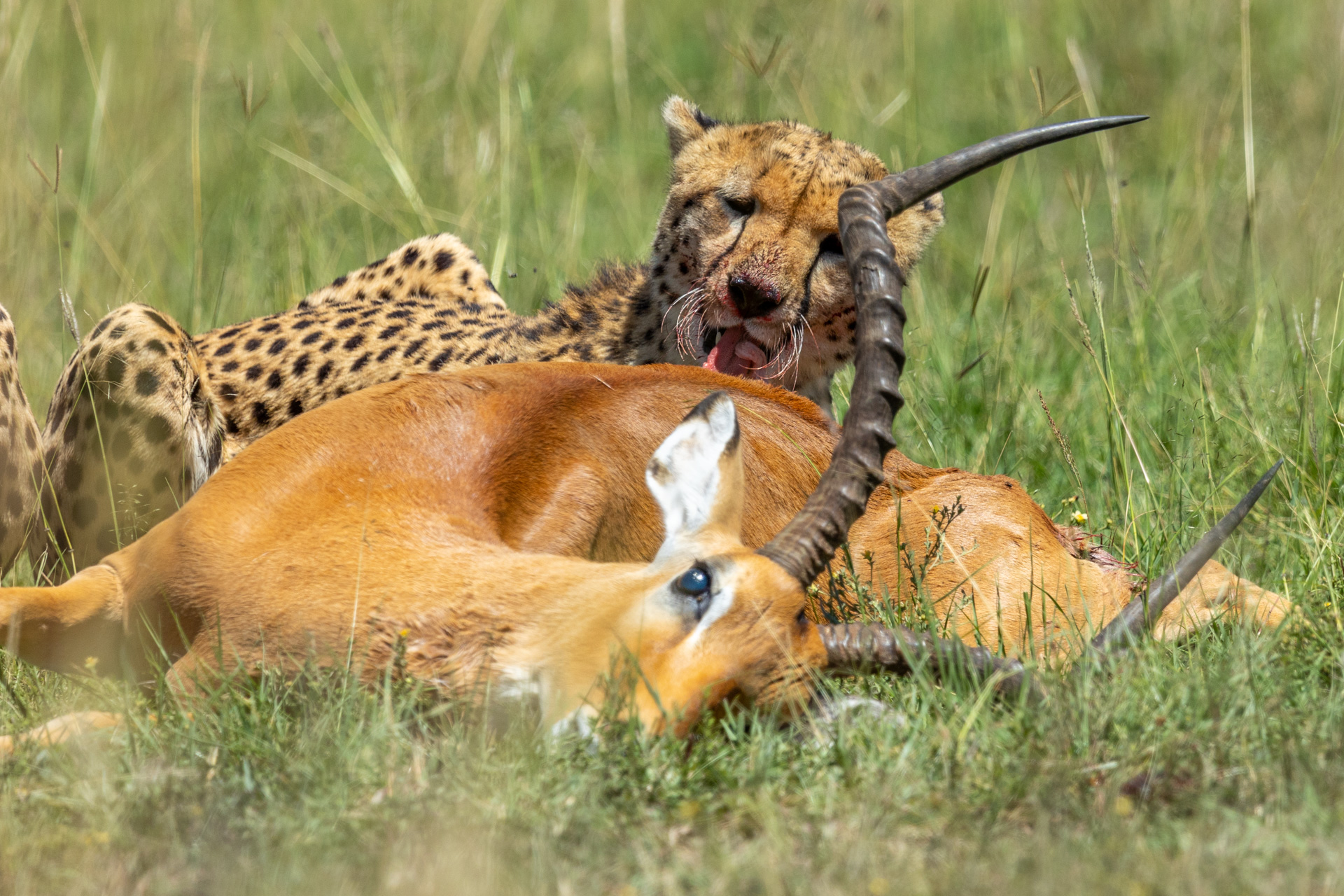
The Angama Lioness is in good shape, we saw her in her favourite spot — perched on a tree. It has been about two months since her mating period with the nomad Lamai Male that killed her cubs. If she conceived successfully, we expect that she will have new cubs around mid-July.
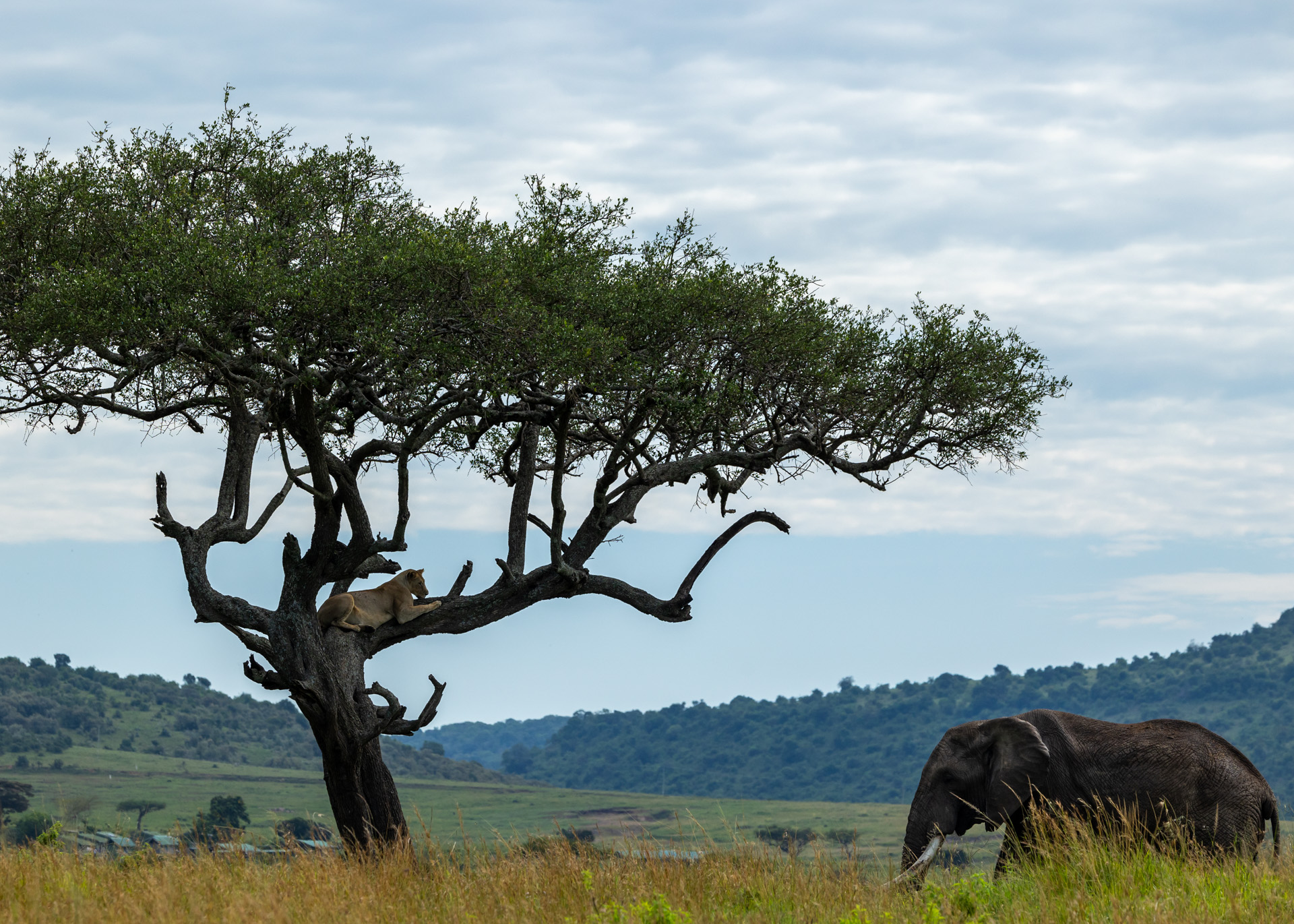
With the Bila Shaka males back towards the other side of the river, the Nomad Lamai male is still hanging around down the escarpment below Angama, clearly not wanting to wander too far from the Angama Lioness.
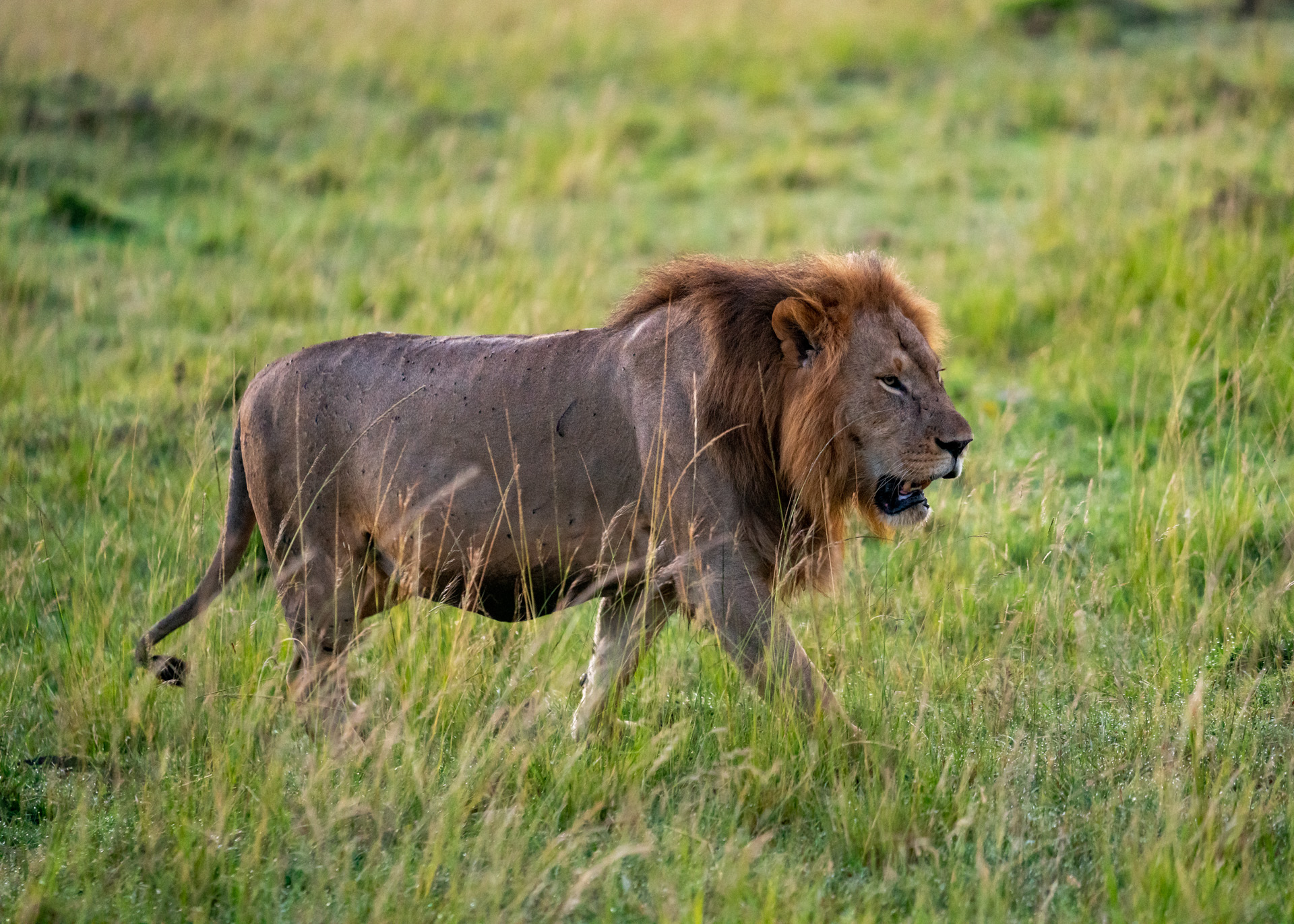
Musth elephant bulls are bossy, full of testosterone and determined to enforce their dominance over other bulls and vehicles alike. As they eat less and less during this period they use the roads more often and it's quite easy to encounter one flouncing on the road leaving a trail of pungent urine on their path. The surge in numbers of musth bull elephants is a very good sign as it indicates a healthy elephant population and a nutrient-rich environment.
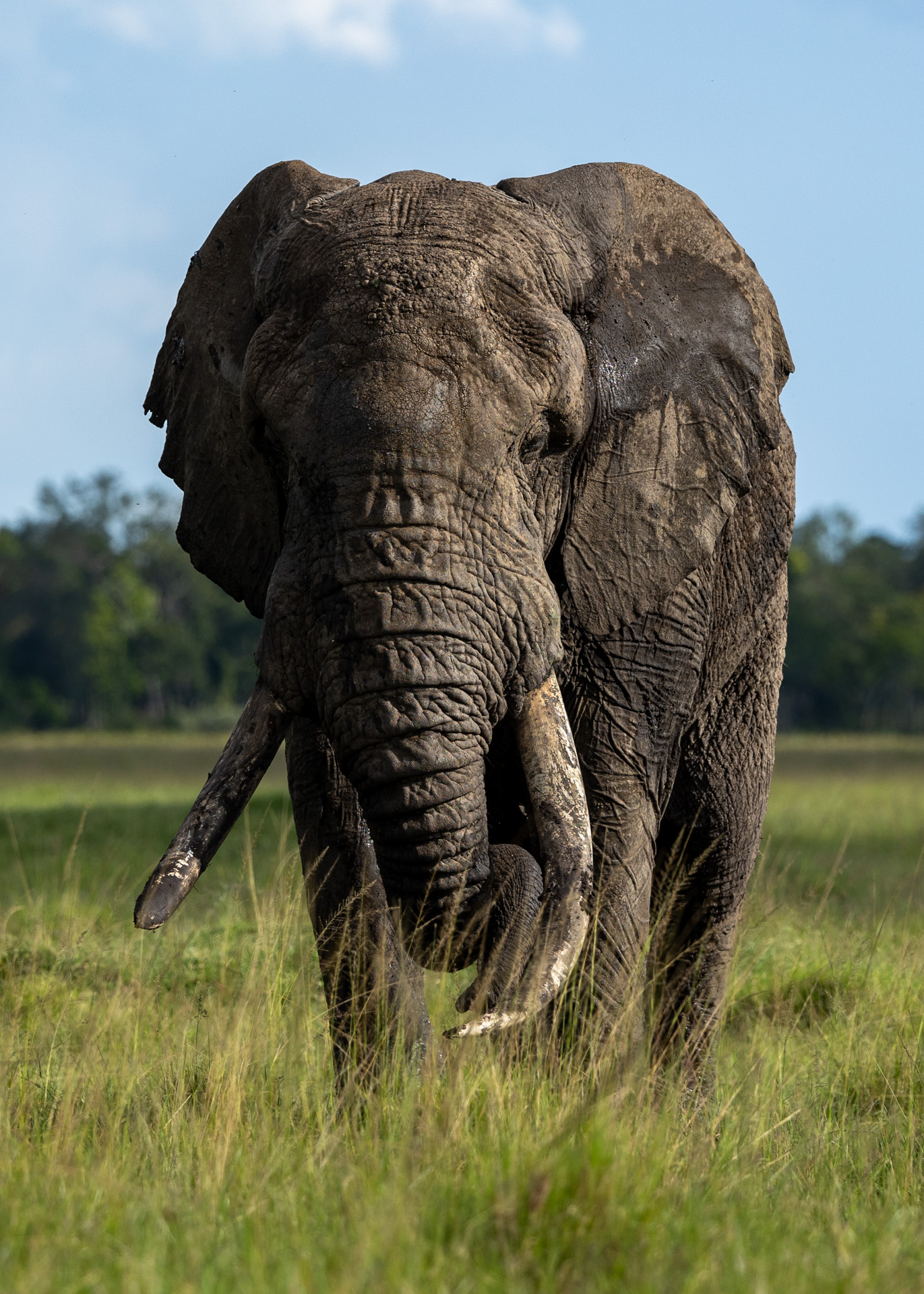
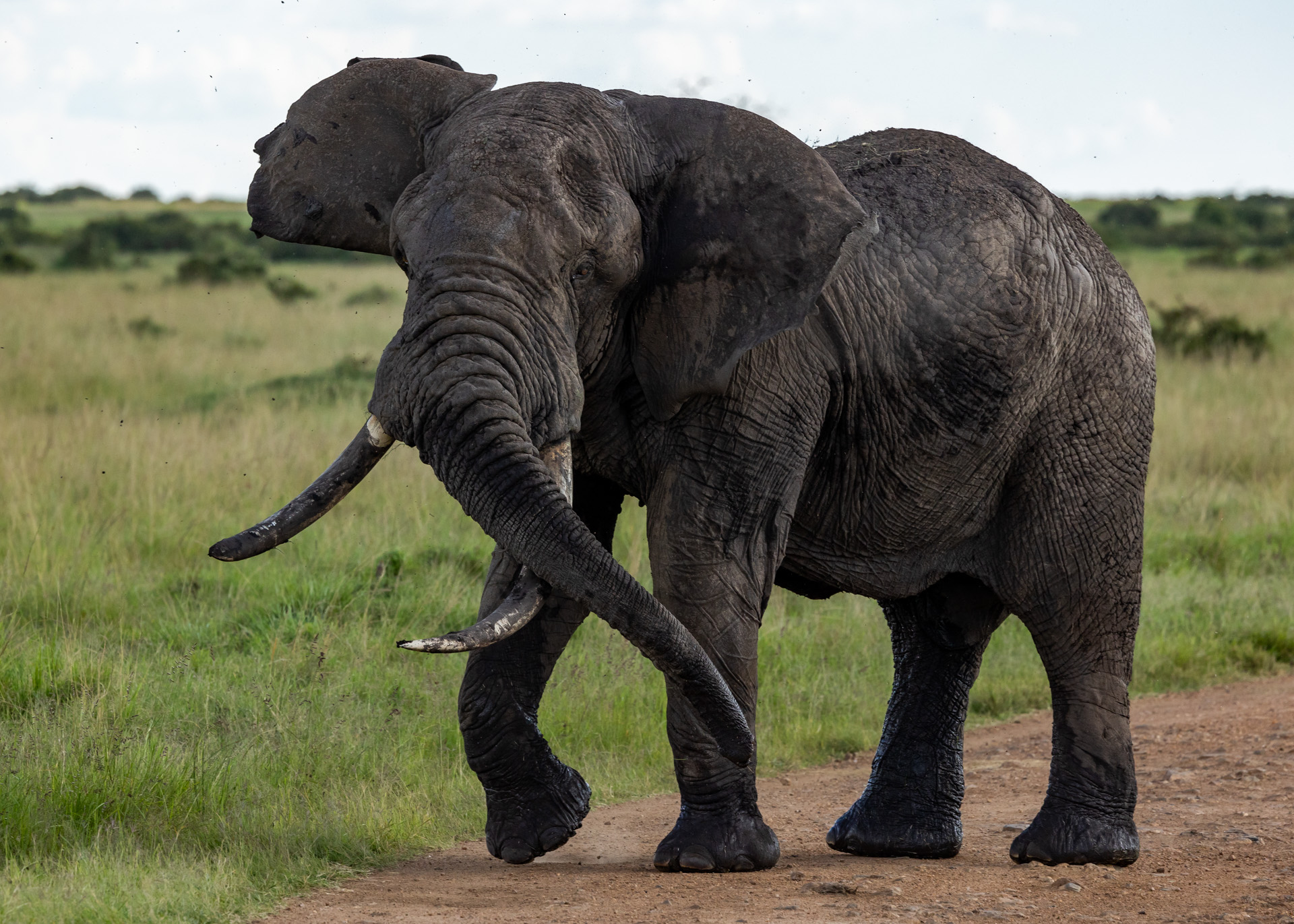
The rains are back this week, mostly coming from the north, making for a beautiful and lush savannah while settling the dust just in time for our guests to enjoy their game drives. As usual, we try as much as possible to make the most during the morning hours with beautiful sunrises but you don't necessarily need to venture into the Triangle to do that as sunrise is equally as beautiful from the Angama Mara Guest Area.
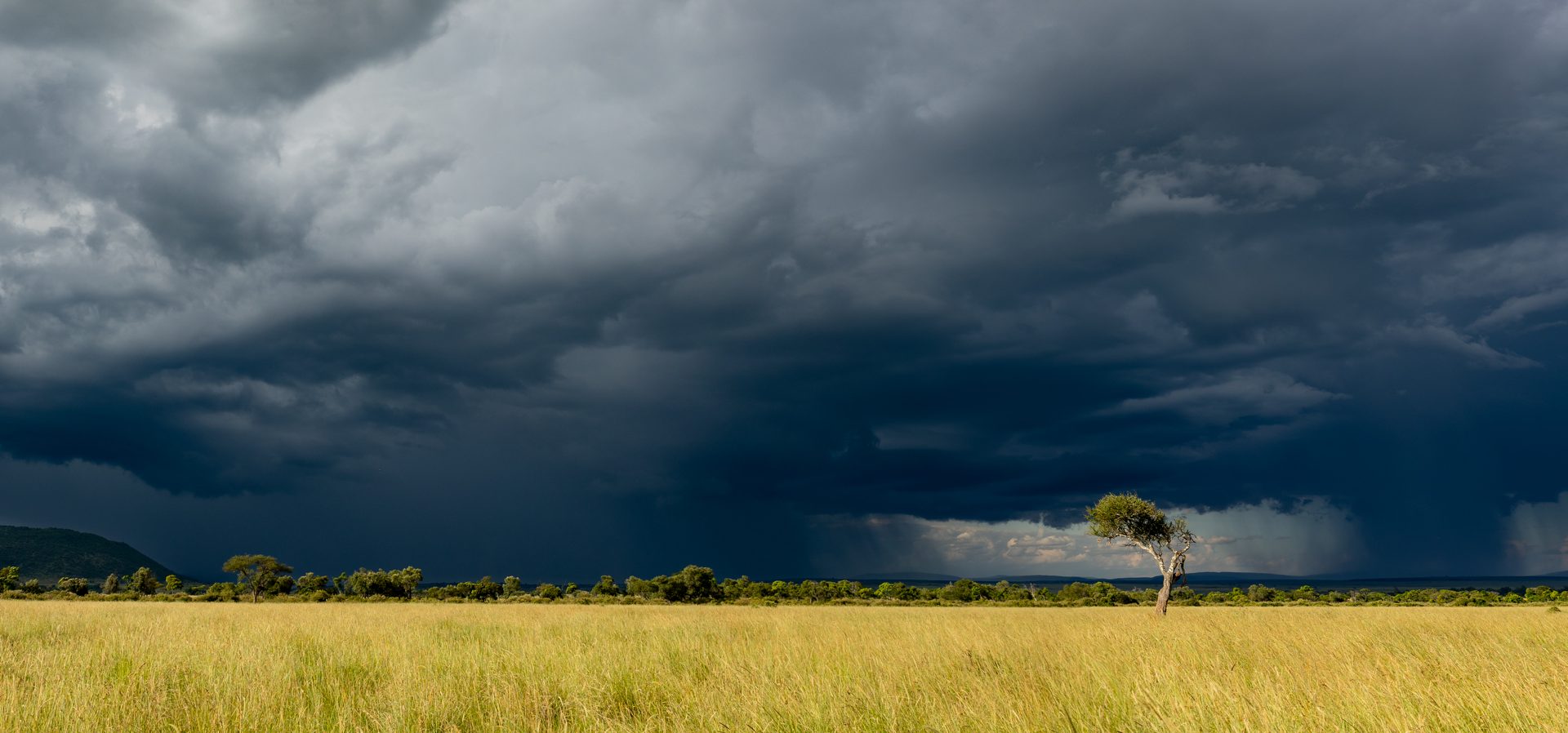
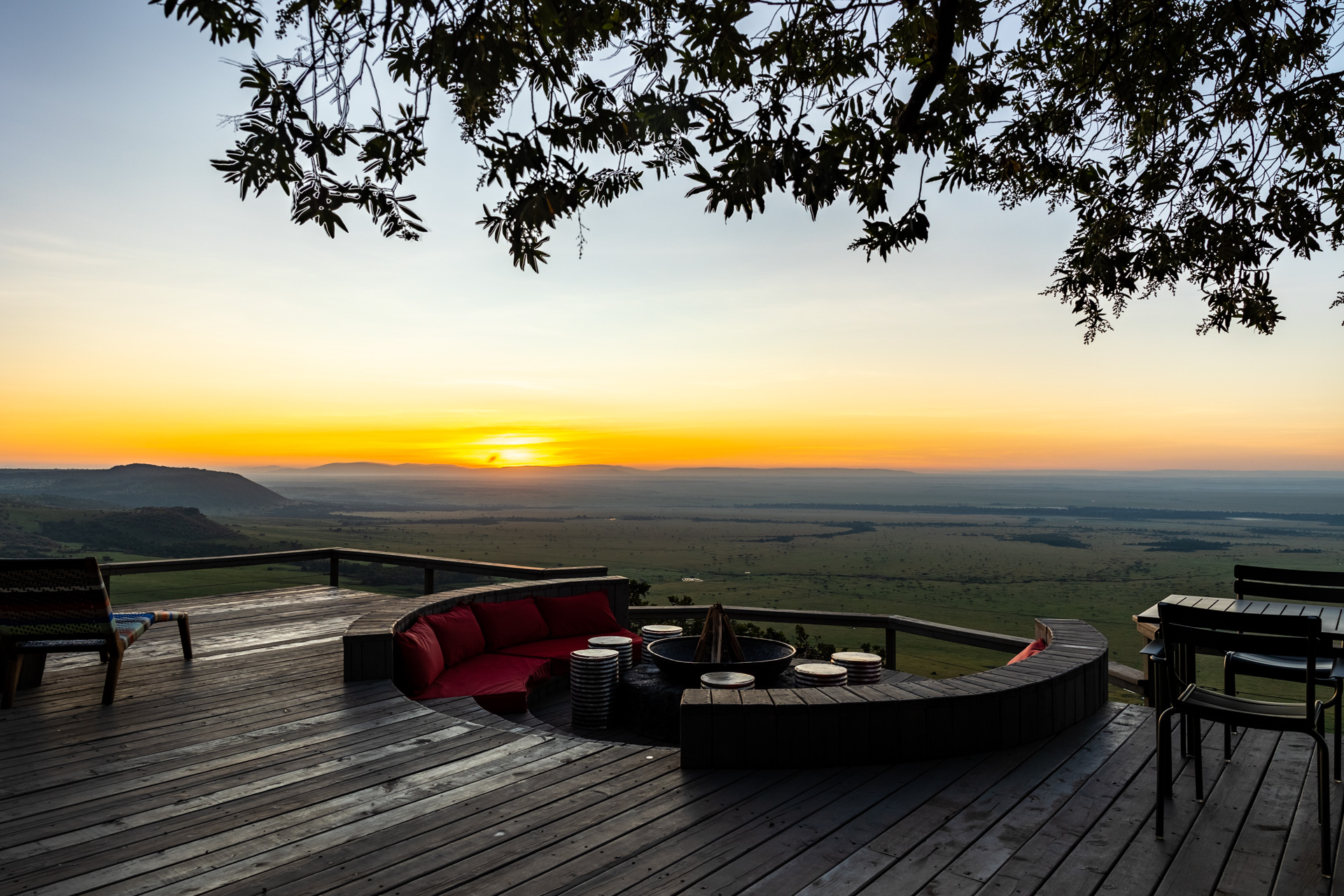

Water is seeping into the holes on the ground, bringing out all the insects and amphibians. This is providing easy meals for birds and they are certainly making the most of it, like this pied kingfisher who it happily swallowing a frog.
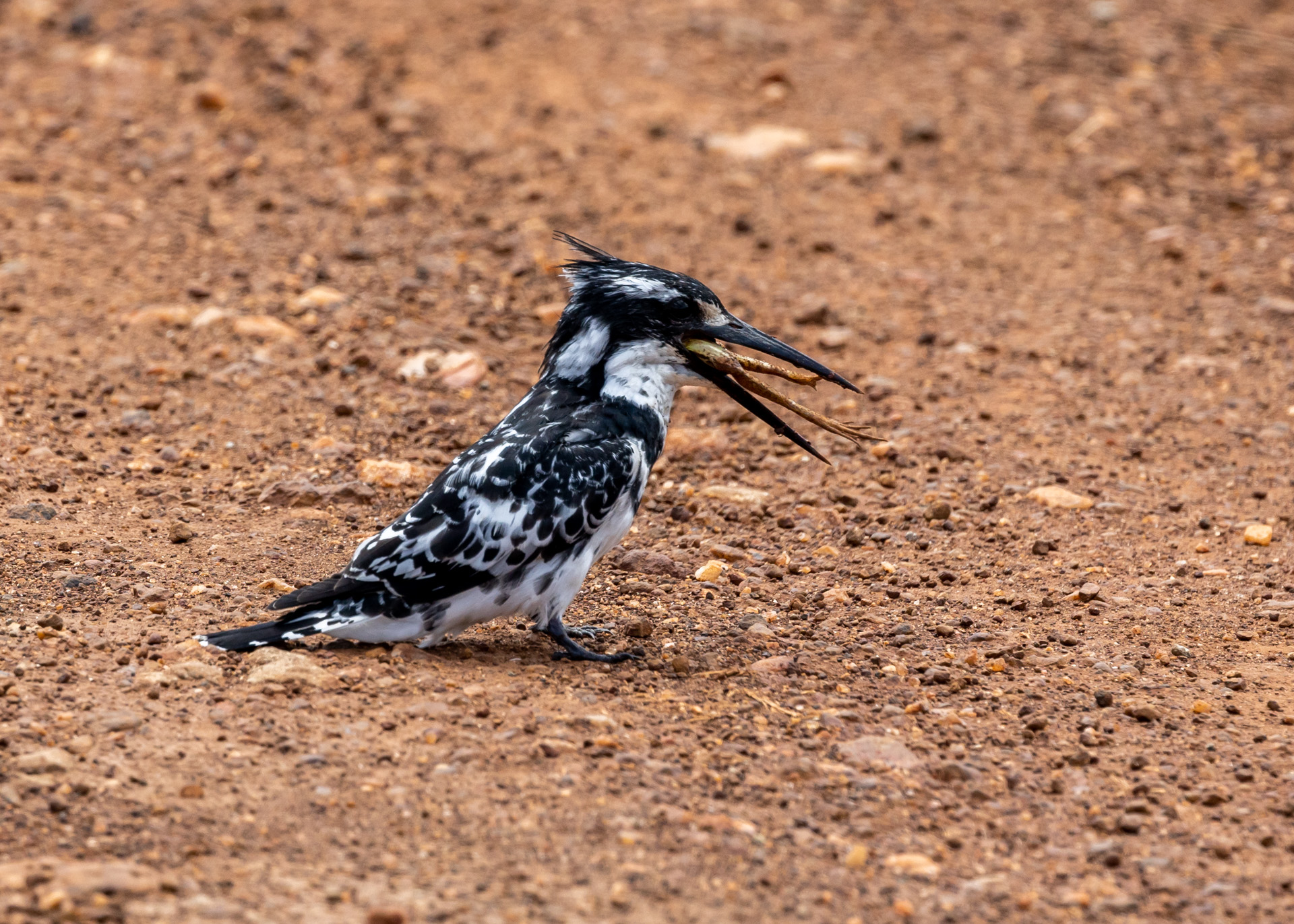
First spotted in the Triangle in January this year, this male was locked in a fiery fight with Shujaa. Since the constant battle over Shujaa’s territory started, this new male keeps being spotted at BBC, hence nicknamed the BBC male. After those subsequent fights, Shujaa moved towards Maji Machafu and never ventured as far as the BBC area again.
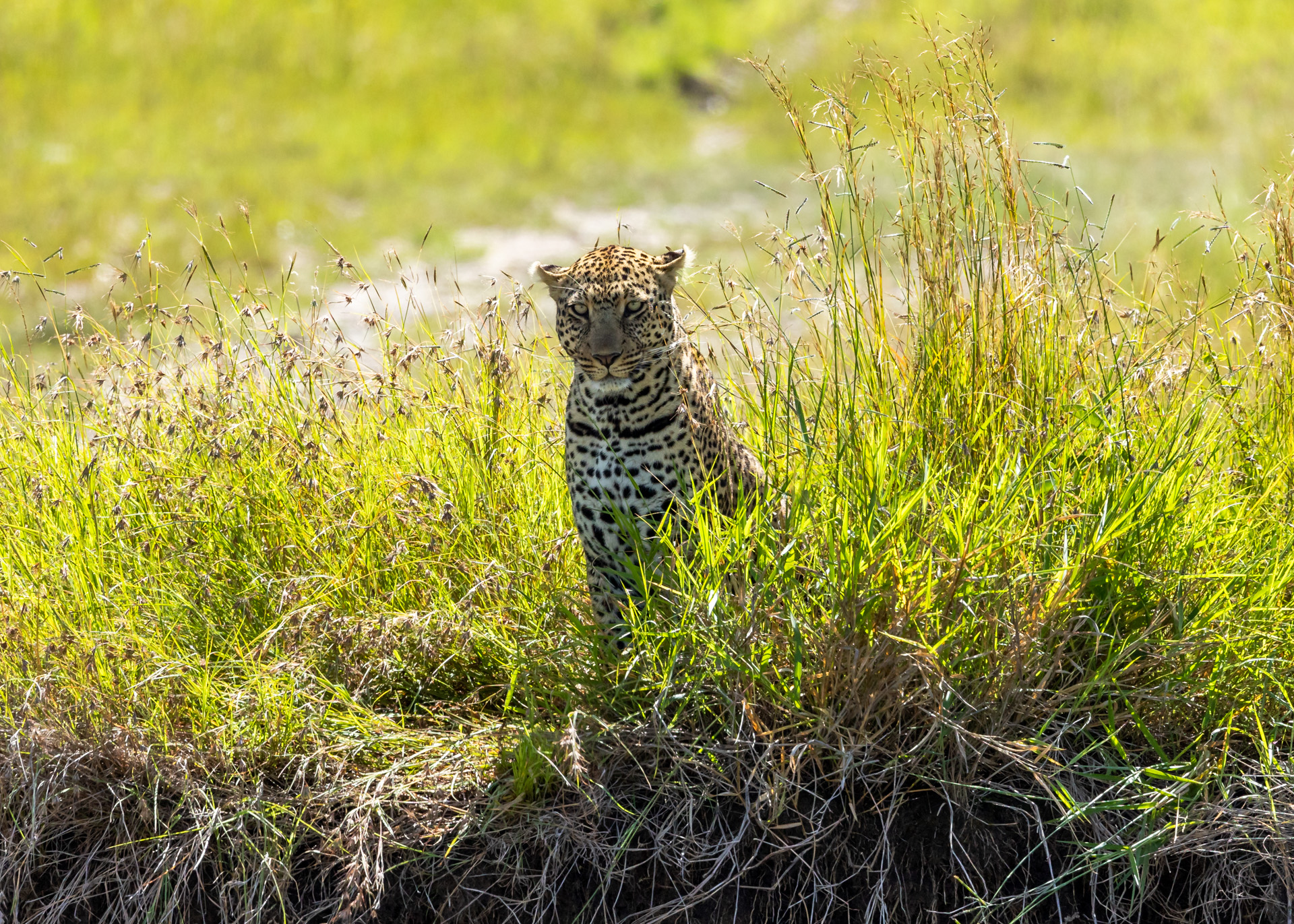
This week, Shujaa also made an appearance. He was close to Maji Machafu and had a warthog kill up a tree. The Mara Conservancy rangers had reported that he had sustained injuries after the numerous fights with the new king of BBC, who is younger and fitter.
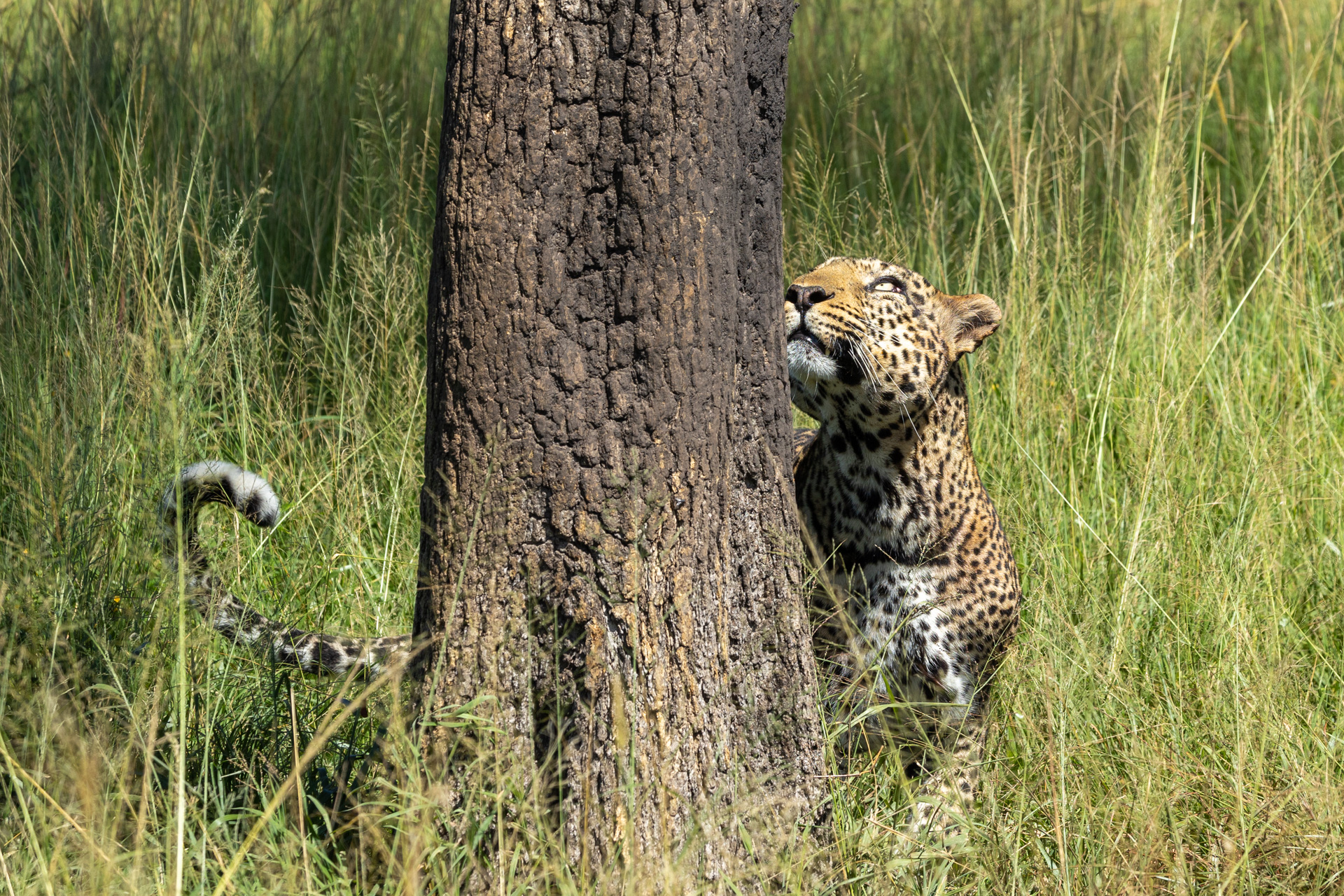
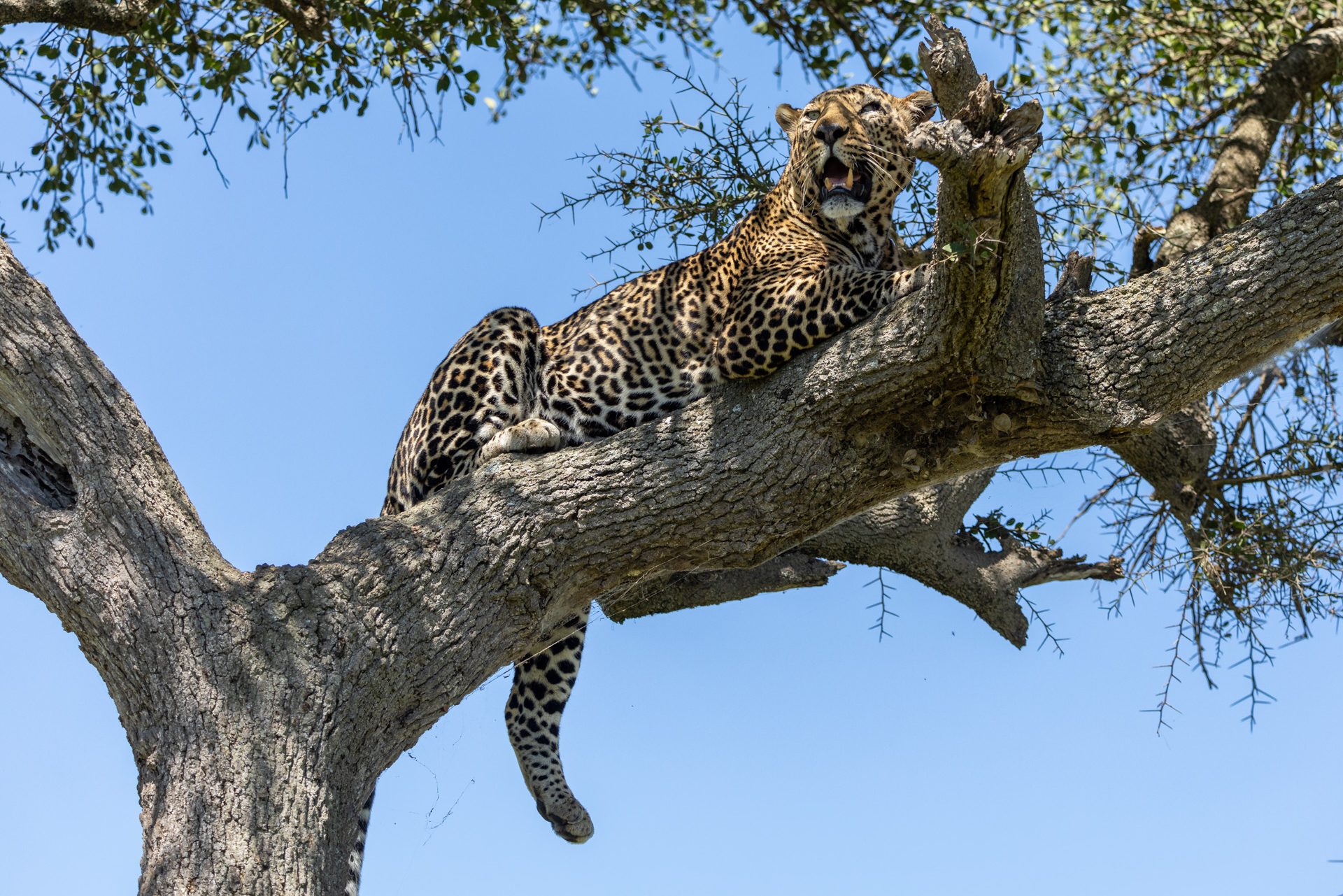
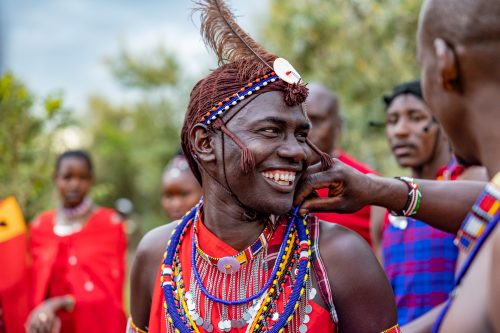
A year ago, Adam contemplated what the safari experience means at Angama. He decided that a safari at Angama Mara is about time spent in one of the most beautiful places on earth with very special people around you.
Filed under: This Week at Angama
Subscribe for Weekly Stories
Comments (0):
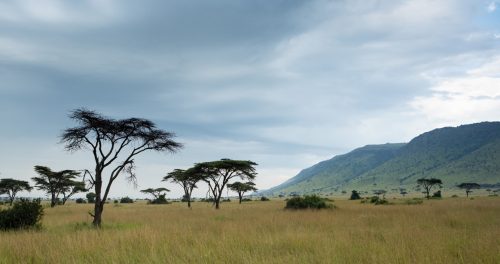
Angama Safari Camp